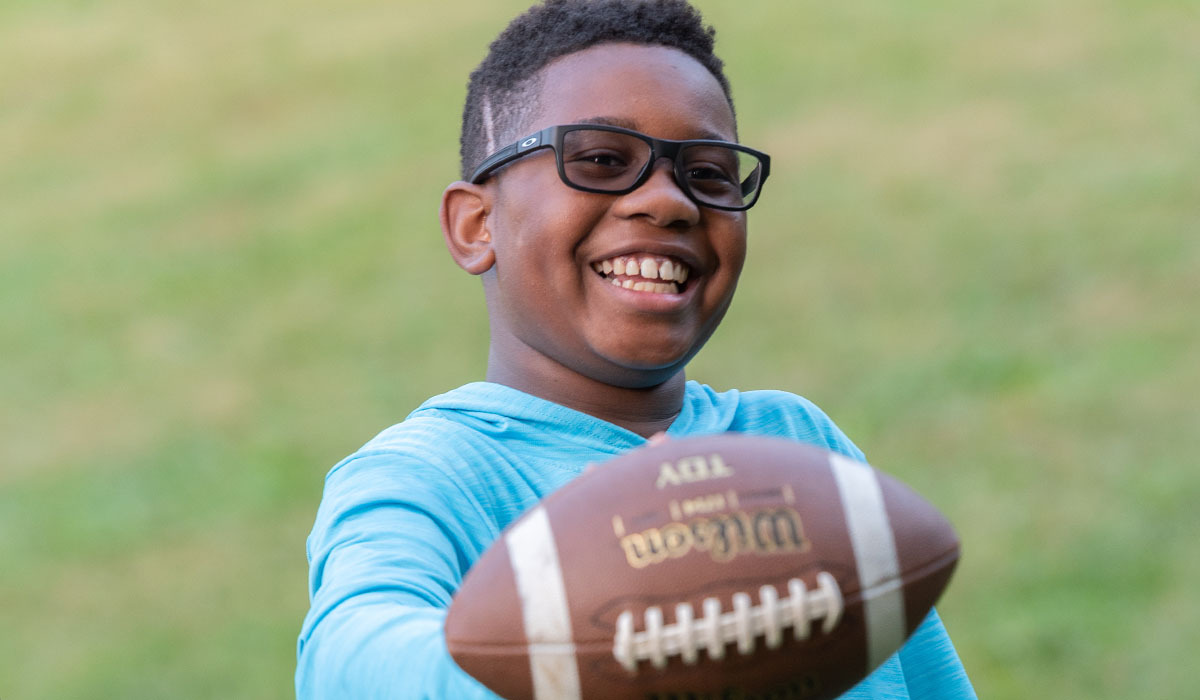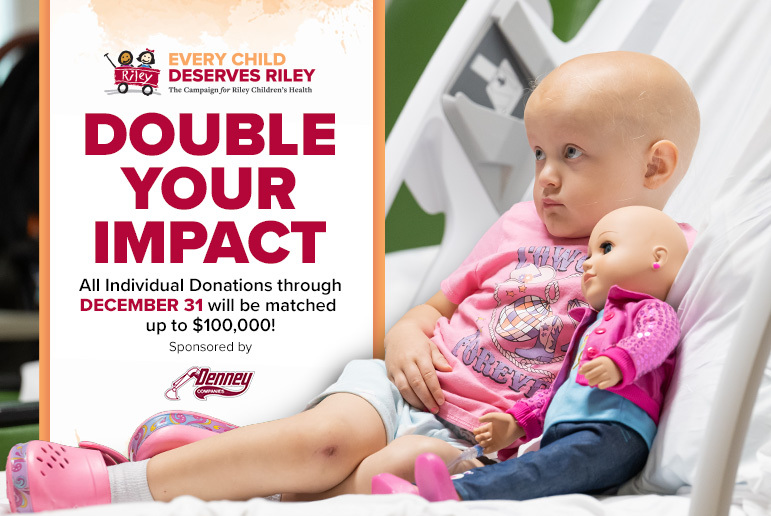Elliot Preddie
November 29, 2021
Elliot Preddie now pursues sports he once dreamed of playing. The 13-year-old recently registered for flag football and is looking to pick up soccer. He loves swimming and is an accomplished Taekwondo athlete.
In 2019, a stem cell transplant to treat sickle cell disease helped open the door to more activities for Elliot. “Riley will always be the place that saved my son’s life in more ways than one,” says Elliot’s mother, Tremesha. “We are a Riley family for life.”
Elliot was just six months old when he made his first visit to Riley Hospital for Children at Indiana University Health to treat symptoms of sickle cell disease. Pain crises are a major symptom of the disorder, as sickle-shaped red blood cells block blood flow through tiny blood vessels in the body. The pain kept Elliot from physical activities as simple as playing in the backyard sprinkler or building a snowman.
Elliot’s father, Terrence, remembers how Riley had a way of making his son comfortable during treatment. “It was their attention to the kids. We felt more comfortable at Riley, and he would bounce back from his crises a lot faster.” Elliot’s care team is led by Riley Pediatric Hematologist Seethal Jacob, M.D.

His disease progressed to the point where he needed monthly blood transfusions. Elliot would also undergo surgery for Moyamoya, a rare progressive cerebrovascular disorder caused by blocked arteries at the base of the brain. The procedure significantly reduces risk of stroke.
Ultimately, Elliot underwent a stem cell transplant, as doctors discovered he had an adult cousin who could serve as a donor. Elliot was in the hospital for 37 days. Eventually, tests showed his bone marrow grew back 100 percent free of sickle cell.
Now the family looks forward to Elliot sharing his story. They are hopeful that Elliot can make many others aware of the disease and cures. Elliot’s 5-year-old brother Carter also has sickle cell, and the family is hoping to see the same health outcome for him.
“Sickle cell is a disease that is really hard on children,” says Terrence, “and they don’t understand and don’t know why. We can provide some hope to families who go through it.”
